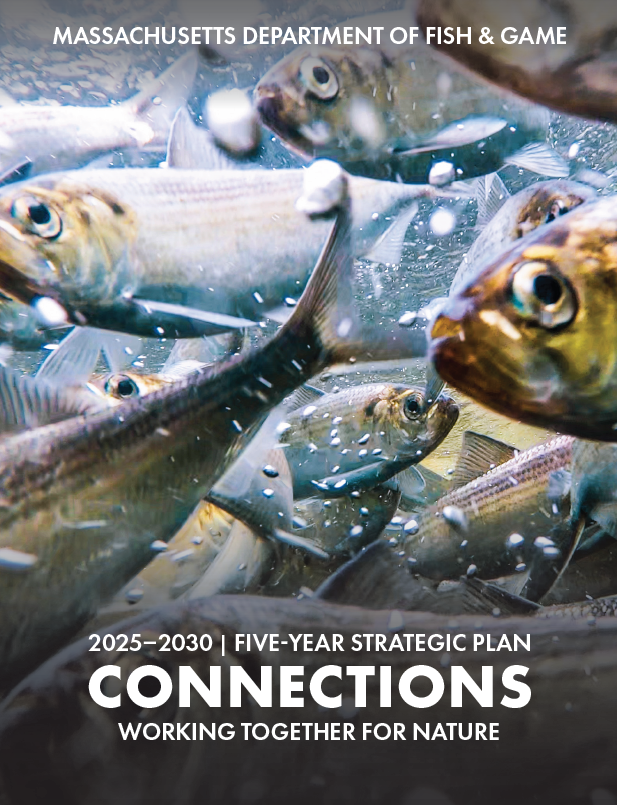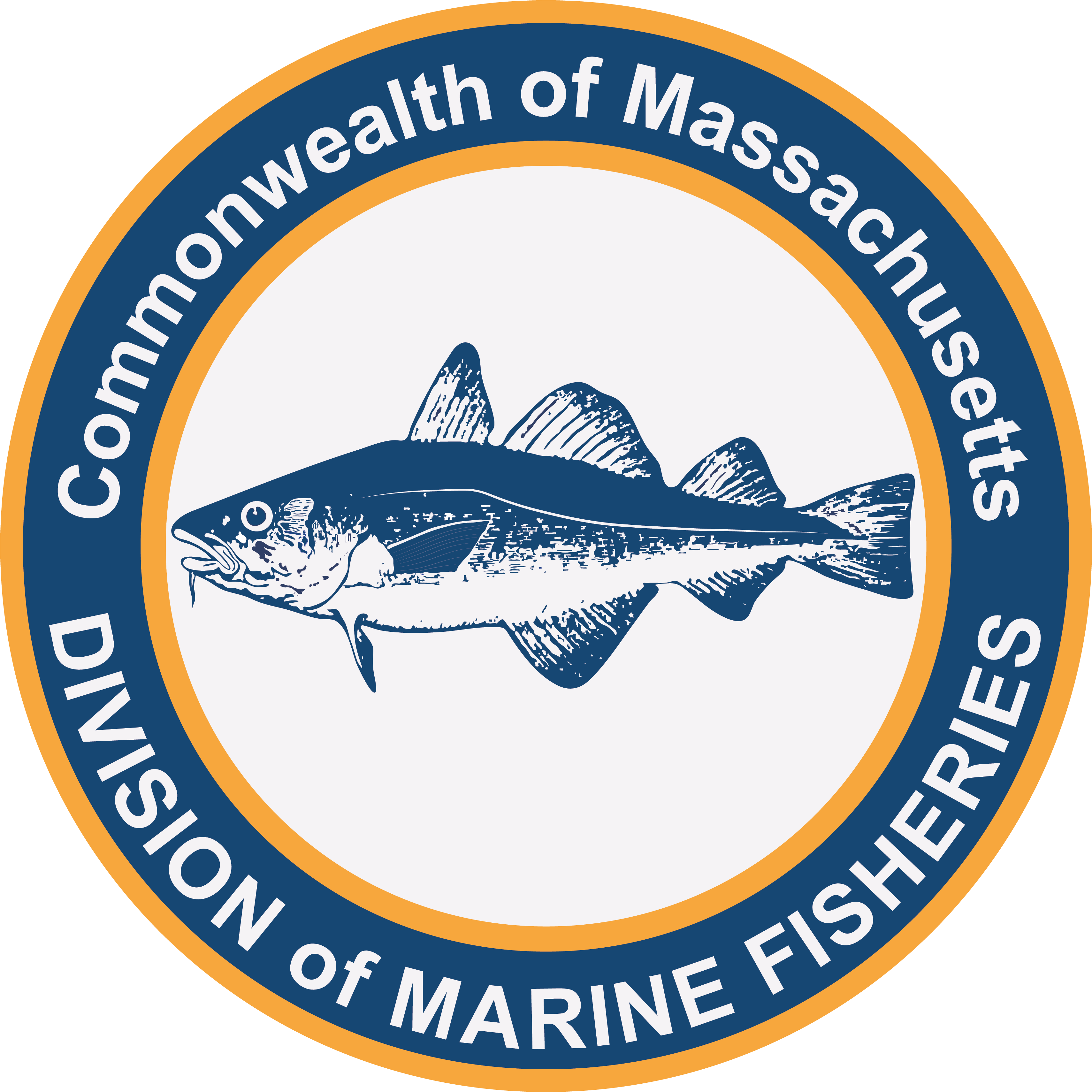- Division of Marine Fisheries
The Massachusetts Department of Fish & Game is proud to present Connections: Working Together for Nature, a bold five-year strategic plan for conserving nature for people and wildlife. Created collaboratively across the four divisions—including the Division of Marine Fisheries—Connections: Working Together for Nature creates a unifying vision for the Department, focusing our work on solutions at the intersection of biodiversity, climate change, and environmental justice.
By aligning our efforts, this plan will allow us to leverage the necessary funding and resources to respond with urgency to some of the greatest challenges of our time and expand our impact to better serve the people of the Commonwealth. Three themes—biodiversity & climate, environmental justice, and relevance, visibility, & capacity—frame the goals, objectives, actions, and key results that we seek to accomplish by 2030. When achieved, the actions outlined move the Commonwealth towards a more nature-positive future where plants and animals thrive and all people feel a sense of appreciation, belonging, and connection to nature.
Numerous key results outlined are relevant to the Division of Marine Fisheries, including the following. By 2030, we will:
- Improve diadromous fish species access through barrier removal and effective fish passage structures by completing eight cooperative fishway improvements and three projects of high regional significance in large and mid-sized coastal watersheds.
- Increase acres of eelgrass restored by 50% above the August 2024 baseline.
- Increase monitoring and response capacity to address emerging biotoxin and ocean acidification impacts, protect public health, and support the Massachusetts shellfish and aquaculture industry. Harmful algal bloom monitoring frequency/stations are increased by 25% over December 2024 baseline.
- Increase access to affordable, fresh fish and shellfish and increase access to recreationally caught seafood as a nutritional resource. Identify opportunities to connect EJ communities with seafood dealers and commercial fishermen to market undervalued species such as scup, whiting, and redfish.
- Develop and implement a comprehensive EJ communication plan to ensure that all are informed of DFG and Division programs, efforts, and actions occurring in or near their neighborhoods, and given meaningful opportunities to provide feedback and be involved in the planning, design, and implementation.
- In collaboration with project partners, identify potential locations for new accessible shore fishing or sport fishing piers, located on public land and waterbodies, and within designated EJ populations or within a 2-mile walking radius, and initiate permitting and design process for feasible, high-priority locations.
- In collaboration with new and existing partners, identify and implement opportunities and strategies to expand capacity for DMF’s Saltwater Angler Education Program to offer more family saltwater fishing clinics and other educational events.
- Identify and implement opportunities to expand DMF’s Seafood Marketing Program to continue to increase consumer demand and preference for local seafood products, and to support the Commonwealth’s fishing and seafood industry and the residents and communities that benefit from these activities.
Through a year-long process, our Department came together to develop the goals, objectives, actions, and key results you see outlined in this five-year strategic plan. This effort would not have been possible without the leadership of Department of Fish & Game Commissioner Tom O’Shea and Division of Marine Fisheries Director Dan McKiernan and the significant contributions of DMF staff members including: Deputy Director Bob Glenn, Deputy Director Mike Armstrong, Chief Fiscal Officer Kevin Creighton, Fiscal Manager Stephanie Cunningham, Outreach Coordinator Neil McCoy, Assistant Deputy Director Christian Petitpas, Assistant Director Story Reed, and Habitat Program Manager Mark Rousseau.
Explore the full strategic plan online at mass.gov/dfg-strategicplan.
By Julia Hopkins, DFG Communications Director, and Bob Glenn, DMF Deputy Director

